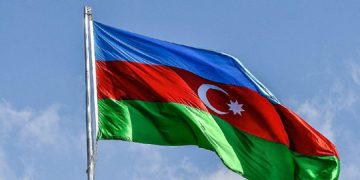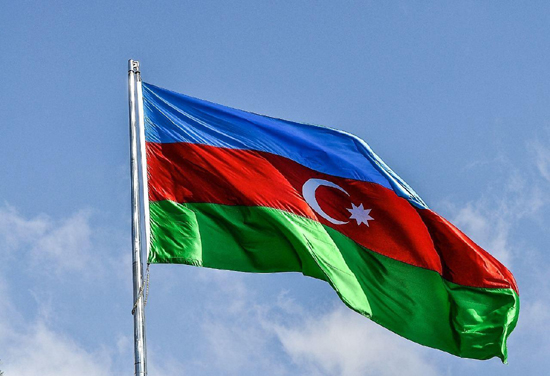Azer News
The war in Ukraine has been a massive test for Azerbaijan’s foreign policy, which has long been contingent on the principle of pursuing the line of balancing conflicting geopolitical considerations in such a way that would not militate against its core priority, the post-conflict normalisation in Karabakh, and would not compromise its sense of international justice.
The recent crisis has invoked a vital necessity of rightly calibrating between “practically sensible” and “normatively right”. The Moscow declaration, signed at a very sensitive juncture, when Russia was almost friendless on the international stage, provided Baku with some extra guarantees from the Kremlin with regard to its territorial integrity, whereas the carefully worded but open support for Ukraine through, amongst other things, humanitarian aid, has reaffirmed the coherence of its international stance.
At the heart of turning a crisis into an opportunity is, amongst other things, an ability to see barely discernable moments, which, if channelled into the right direction, may give rise to certain advantages. To this effect, one of the strengths of Azerbaijan’s foreign policy was that there was never an assumption, even in the short term, that it would be possible to stay in a comfort zone, and some pre-prepared reflexes were in readiness to combat worst-case scenarios.
Baku has long had deep and perfectly justifiable concerns over the manner in which the Russian peacekeeping forces conducted themselves in Karabakh, and the Moscow declaration has not made them fade away. However, if the recently formalised allied relations between Baku and its northern neighbour will create a sufficiently pivotal momentum on the way of progressing towards a comprehensive Azerbaijani-Armenian peace agreement, it is possible that the Kremlin may feel a lesser necessity to maintain its military presence in Khankandi.
In light of the West’s desire to free itself from the shackles of energy reliance on Moscow, Baku’s role as an alternative supplier gains a new momentum. Three weeks prior to the Russian invasion of Ukraine and the onset of the latest barrage of sanctions, the European Union’s foreign policy chief, Josep Borrell, confirmed that Baku and Brussels had been in talks, and if the diplomacy failed, the options involving Azerbaijani gas would be looked into.
Having said that, it is also important to remind ourselves of the fact that for all its strategic value as an alternative energy supplier, Azerbaijani option has its limitations. Pursuant to the Moscow declaration, Baku’s manoeuvrability here is a matter of delicacy and it is inevitable that there is going to be some complexion put on this issue.
Further, Baku has potential to increase gas export, as it did in relation to Turkey, but if to envisage a larger picture, it is not an alternative to Russian energy sources in terms of volumes. At present, given the gas production itself and the pipeline infrastructure put in place, Azerbaijan would only be able to replace a relatively small amount of Russian exports to Europe. Moscow’s share in the market is of gargantuan proportions, which amounted to 158.5 bcm in 2020, whereas Azerbaijan’s exports to the EU are currently restricted to a single pipeline, the annual capacity of which does not go beyond 10 billion bcm.
Nevetheless, the whole subject is not just about mere figures or volumes, or long-term fundamental solutions. Firstly, Azerbaijan has never claimed to be in a position to save Europe in the long run. Quite the reverse, President Aliyev has repeatedly downplayed Baku’s capacity in terms of replacing Russian gas in his numerous interviews, and, in fact, described this hypothetical rivalry with Russia over the supply issue as artificial and unfounded.
What Azerbaijan is certain about for now is that it has capabilities to promise extra emergency in the short run, which, given the current volatile state of affairs on the energy front, is still of immense significance. At the same time, it is obvious that the general vision cannot be circumscribed to the “presentism”, and there are a couple of expansion routes that are key to Azerbaijan’s future global energy status.
Baku has several other gas fields, currently under development and in need of investment, which will undoubtedly add to future export volumes. There is also an option of cooperation with Turkmenistan, which has the fourth-largest gas reserves in the world. Despite rivalry, which has been underway for some time, Baku and Ashgabad will need each other and may form a unified base as a source of alternative energy for Europe in the long run. The countries have been working on the joint Dostlug field, and there was a three-swap agreement allowing Turkmen gas to reach the European market.
In light of the current complicated geopolitical situation, Azerbaijan, on the whole, has managed to protect its interests and lay the foundations of a fertile ground for further strengthening of its international clout. The Ukrainian crisis has been a massive test, and continues to be, for Azerbaijan. Had it not happened, life would have been much easier. But since the things has already gone out of control, now it is vital to deal with its fallouts in a manner which be as less damaging to the key foreign policy priorities possible. Baku has so far maintained a very cautious approach and one may say avoided dangerous pitfalls.





